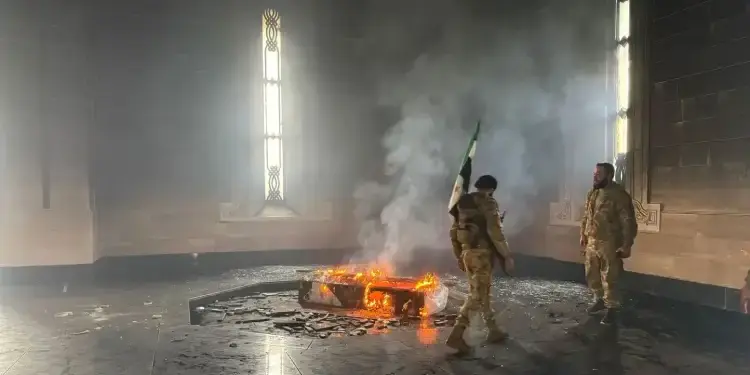The tomb of Hafedh al-Assad, former Syrian president and father of the current Bashar al-Assad leader, was burnt down by rebels in his hometown of Qardaha, located in the governorate of Latquié. This incident, which occurred on December 11, 2024, marks a crucial step in the tumultuous context of the Syrian civil war.
The fire of the mausoleum of Hafedh al-Assad, an emblematic figure of the Syrian regime, resonates as an act of revenge towards a system of governance perceived as oppressive by a large part of the Syrian population. Hafez al-Assad reigned over Syria for three decades, from 1971 to 2000, establishing an autocratic regime which forged the political identity of the country.
The act intervenes in an increased climate of instability, while the Bashar al-Assad regime has been overthrown. The destruction of this highly symbolic place not only reflects the social fracture but also the intensity of the dispute against the Assad, but also resonates as an act of incivism and which risks plunging the country into a spiral of revenge, according to some others.
Qardaha, the hometown of the Assad family, historically represents the heart of Alaouite power, the religious minority from which Hafedh and Bashar al-Assad came. The mausoleum, which houses the remains of Hafez al-Assad and his son Bassel al-Assad, was a place of pilgrimage for the faithful of the regime and symbolized dynastic continuity.








